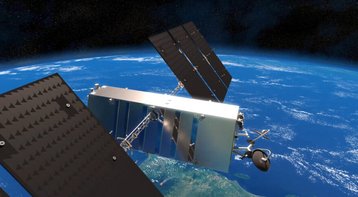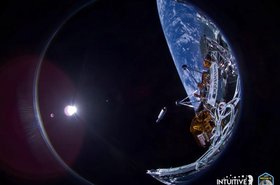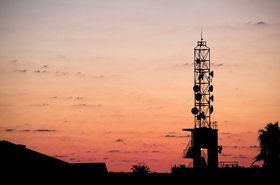Canadian satellite operator Telesat has chosen a new manufacturer for its upcoming Low Earth Orbit (LEO) satellite constellation.
The company announced that space technology company MDA Ltd. will build 198 advanced satellites for its Lightspeed program.
Telesat also announced that Lightspeed is now fully funded through to service delivery through a mixture of the company’s own equity contribution, vendor financing, and funding commitments from its Canadian federal and provincial government partners.
First announced in 2018, Thales Alenia Space was chosen to be the prime manufacturer for the Lightspeed Constellation back in February 2021.
However, supply chain issues mean the fleet was pushed back from its original 2023 launch date and dropped the number of satellites from 298 to 198, having already previously pushed back the original launch date of 2020 after delays in choosing a contractor.
As recently as last month, Thales Group’s chief executive Patrice Caine suggested that Telesat’s order with the company was still “very much active.”
The company said the switch to MDA results in a $2 billion cost saving, which means the constellation is now fully funded to the tune of $3.5bn. Telesat is investing around $1.6bn, with Canadian federal and provincial government partners contributing around $2bn. The operator also has “some hundreds of millions of dollars” in financing from an undisclosed vendor that CEO Dan Goldberg said was not MDA.
“The re-designed Telesat Lightspeed network will achieve increased network efficiency and enhanced flexibility to focus and dynamically deliver capacity to users,” Telesat said. “These technology advances allow each satellite to be slightly smaller than the satellites Telesat was previously considering while still maintaining the highest levels of service performance, resiliency and overall usable capacity in the network.”
The contract is the largest in MDA’s history and includes the design, manufacture, assembly and test of the satellites, which MDA will produce at its facilities in Montreal, Quebec.
Satellite launches are scheduled to commence in mid-2026 and polar and global services are scheduled to begin in late 2027.
The operator has funding commitments for the 156 satellites and will use Lightspeed revenues to fund the remaining 42 units. Telesat also has the option to purchase up to 100 additional satellites.
“I’m incredibly proud of the Telesat team for their innovative work to further optimize our Telesat Lightspeed design – which was already a highly advanced and high performing LEO network – resulting in dramatically reduced costs with unmatched enterprise-class service offerings,” said Telesat CEO Goldberg.
“MDA is a world-class satellite prime contractor with an impressive track record and a number of recent high profile, strategic space programs announced, and it is a privilege to be working side-by-side with them on the flagship, game-changing Telesat Lightspeed constellation.”
Mike Greenley, CEO of MDA, added: “True to our values, MDA has been committed to being a trusted Telesat Lightspeed mission partner since the beginning, and our proven performance as an LEO constellation satellite prime contractor will now be leveraged to take the constellation forward.”
According to SpaceNews, the new MDA satellites will offer 10 terabits per second (Tbps) of capacity per satellite – the same as previously planned – but with a smaller satellite that uses digital beamforming instead of analog antennas.
The delays, however, mean the company will have to apply for an extension for its Ka-band spectrum rights with the ITU.
Last year Globalstar picked MDA to build its Apple-backed third-generation satellites.
In other satellite news:
- Telefónica has renewed its contract with SES Astra until 2030 for €90 million. The original deal was set to end in 2027.
- Viasat has announced the opening of a Real-Time Earth (RTE) ground station in Hokkaido, Japan.







